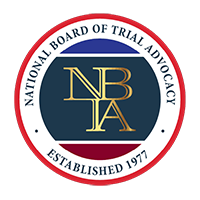Call Us Now
202-463-3030
Schedule a Free Consultation
If you file a claim with your own insurance company after an accident or injury it is considered a first-party claim. You, as the holder of the policy are the first person in this example. If you file an insurance claim with another party’s insurer, it is considered a third-party claim or liability claim. The other person is the policy holder, the insurance company is the second party–therefore you are considered the third party.
If you have any questions about a possible personal injury claim, Regan Zambri Long. Contact a DC personal injury attorney today for a free consultation.
Complete this form and our team will get back to you as soon as possible







Since a first-party insurance claim refers to a claim that you will file with your insurance company to seek compensation for injury or damage, the settlement you will receive from the insurance company depends on the type or types of coverage included in your policy. It is essential for you to know exactly what types of losses are covered and not covered by your policy.
MILLION
Wrongful Death Settlement
MILLION
MILLION
Wrongful Death Verdict
MILLION
Premises Liability Settlement
MILLION
Wrongful Death Settlement
MILLION
Wrongful Death Verdict
MILLION
Medical Malpractice Settlement
MILLION
Personal Injury Settlement
MILLION
Car Accident Settlement
In the event of serious injury or significant property loss it may be helpful to work with an attorney even when filing a first-party insurance claim to ensure appropriate compensation. Unfortunately, insurance companies have their own team of lawyers and insurance adjusters and may try to deny your claims. They could do this by offering a settlement too low to cover lost wages, medical bills, property damage, and pain and suffering. If a settlement payment too low to cover your losses is offered to you based upon an insurance adjuster report, a personal injury attorney could help.
Common reasons for filing a first-party claim are:
Additionally, DC drivers can opt into personal injury protection coverage, also known as PIP as no-fault coverage. It is a first-party coverage, meaning it is available on an insurer’s owned vehicle, and it pays or may pay medical expenses and lost wages ahead of any claim against another party. According to the Insurance Information Institute the District of Columbia has neither a true no-fault nor an add-on law. It offers drivers the option of no-fault benefits or fault-based coverage. In the event of an accident, a driver who originally chose to receive no-fault benefits has 60 days to decide whether to receive these benefits or to take the other party to court.
In contrast, third-party claims will be filed with the other party’s insurance company when you’re hurt because of someone else’s negligence.
In a third-party claim, the insurance company will investigate to determine liability and negotiate a settlement. If the compensation the insurance company offers is too low, you can file a lawsuit against the at-fault party.
You are entitled to seek compensation for such losses as:
While you may have a better understanding of the differences between filing first and third-party insurance claims, it is important to speak with a lawyer about your specific case to discuss your legal options.

In a first-party claim, you will file directly with your own insurance company. However, speak to an attorney first to ensure you take the right steps.
The process for filing a third-party claim, on the other hand, can be complicated involving multiple people and possibly multiple insurance companies. Also, it is important to note that there may be different regulations and time limitations when it comes to filing claims.
No matter what the situation may be, injury victims frequently find it difficult to obtain a fair settlement. Insurance companies and/or corporations try to minimize the amount they must pay by downplaying the financial impact of your injury and trying to shift the blame. If you are recovering from a serious injury or a loved one’s wrongful death, then it can be tough to defend your rights on your own, especially in complex cases.
At Regan Zambri Long PLLC we help victims navigate the complexities of a personal injury claim following an accident. We have decades of experience handling personal injury claims in Washington, DC.
Our lawyers negotiate with insurance companies and the at-fault parties to reach a settlement that compensates you. And we fight for your rights in court at trial.
Have you or your loved one sustained injuries in Washington DC, Maryland or Virginia? Regan Zambri Long PLLC has the best lawyers in the country to analyze your case and answer the questions you may have.